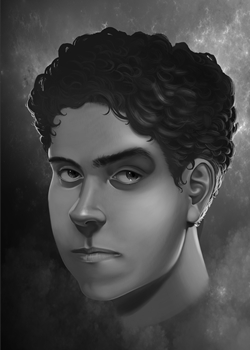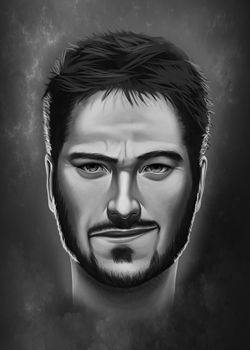Tom Wallace, author of the crime thriller Gnosis, answers questions about his writing process and inspirations. Visit his website or Like him on Facebook.
“Write what you know,” the old saying goes. How much of Gnosis is based on your own experiences? What do you have in common with Detective Jack Dantzler?
I have nothing in common with Dantzler, except for a love of tennis and a bent toward philosophical musings. Dantzler, like Cain in Heirs of Cain, is what I wish I was—intelligent, talented, tough, handsome. “Write what you know” is fine; however, I would rather write what I want to be.
Are any of the characters based on people you know?
No. Every
character is born in the depths of my imagination.
Dantzler and the man whose innocence he’s trying to prove, Reverend Eli
Whitehouse, both spend a lot of time contemplating God. Why did you choose to
incorporate this religious element into your book?
I had been reading Harold Bloom’s great book Jesus and Yahweh: The Names Divine, and
aspects of the book sort of seeped into the story. That can happen; I was
reading a lot of Camus when I was writing What
Matters Blood, and some of his stuff ended up in the book. The title, Gnosis, comes from the terms gnostic or
gnosticism, which, in some ways, incorporates several of my own beliefs.
Portraying Eli Whitehouse as a hard-core Christian fell naturally into the
story. Most Christians, especially
American Christians, are actually gnostics, even though they are unaware of it,
or would ever admit to it.
The plot of Gnosis includes a lot of twists and turns. Are you
the type of writer who maps out your story beforehand, or do you make things up
as you go along? What’s your process like?
Normally, I don’t plot things out too far in advance. I like
to let the story take me where it wants me to go. However, I do spend a lot of
time thinking about how I want to begin each chapter. I never begin a chapter
until I have the starting point clear in my mind.
What kind of research did you do in order to write Gnosis?
No research, other than reading Bloom’s book.
Other than Dantzler, who was featured in two previous novels, what
element of Gnosis first came to mind?
For me, Gnosis was
less about a detective trying to solve a 29-year-old double murder, and more
about redemption, particularly the redemption of Eli and his tormented son,
Tommy. One of my favorite moments in the book comes in the final chapter, when
Eli and Tommy are reunited after not having seen each other in 29 years. I think that’s a really powerful moment.
Why did you choose to write crime thrillers? What it is about the genre
that intrigues you?
I tried to write a “serious” novel on several occasions,
only to quickly realize that I’m not Norman Mailer, Philip Roth or Cormac
McCarthy. I don’t have their talent, and never will have it. Mysteries and
crime thrillers came more naturally, so that’s why I went in that direction. It
was either that, or never give myself a chance of being published.
You spent many years as a sportswriter before penning fiction. What
compelled you to start writing novels?
I have written more than 1,000 poems and five sports-related
books, so going up the ladder to writing a novel seemed like a logical
progression. I finished my first novel in 1989, my second in 1992. I didn’t
have one published until 2006, so if nothing else, I can say I have something
of a bulldog’s tenacity. Either that, or
I’m simply too stubborn to throw in the towel.
Are you working on anything new? Will you continue writing about
Detective Jack Dantzler?
My next novel, The
List, will be published in February. It will feature Dantzler, along with
Cain, the legendary assassin in Heirs of
Cain. Essentially, this will be more Cain’s book than Dantzler’s. The one
after that is tentatively titled The Fire
of Heaven, and it is another Dantzler book. I’m about 30,000 words into it
at this point.
Gnosis is available at: Amazon US (Kindle e-book), Amazon US (paperback), Amazon UK (Kindle e-book), Amazon UK (paperback), Barnes & Noble (paperback), Powell's Books (paperback)
Gnosis is available at: Amazon US (Kindle e-book), Amazon US (paperback), Amazon UK (Kindle e-book), Amazon UK (paperback), Barnes & Noble (paperback), Powell's Books (paperback)














